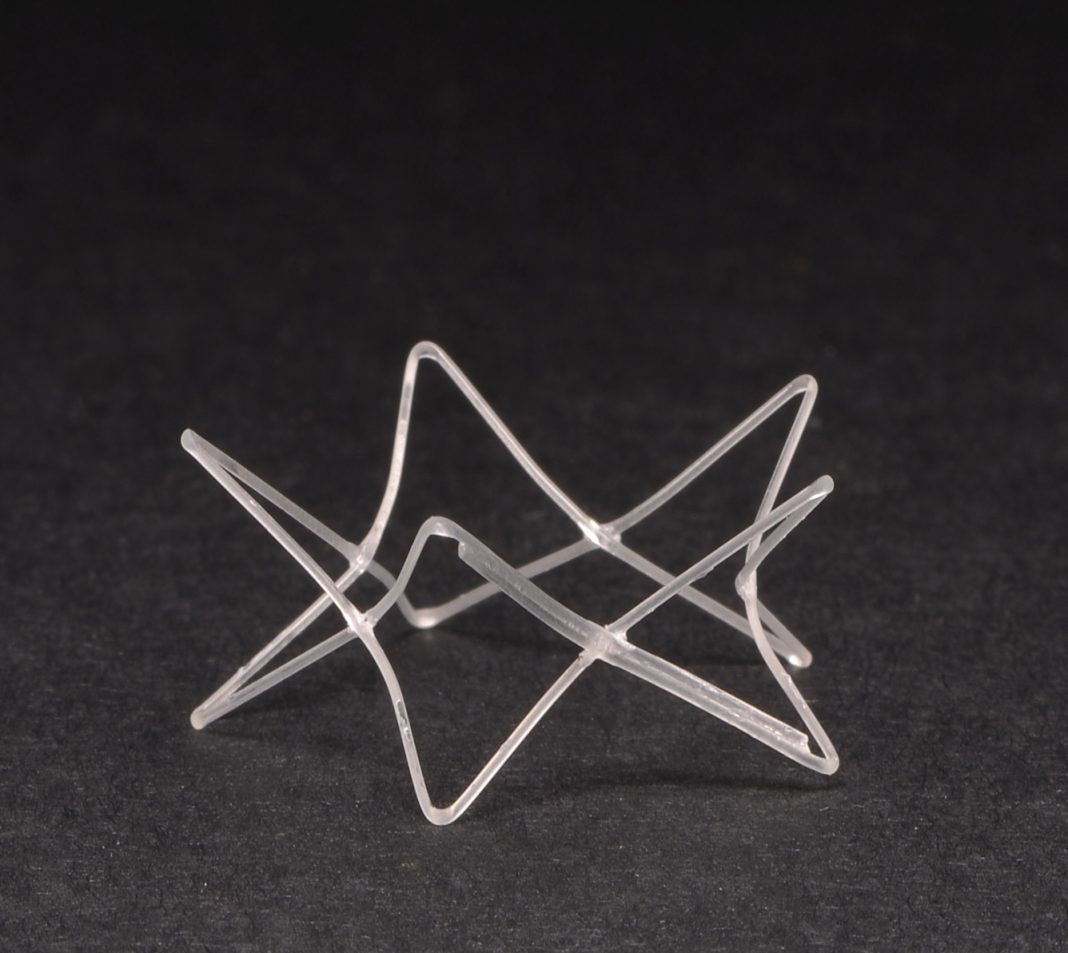Intersect ENT®, Inc. (Nasdaq: XENT), a global ear, nose and throat (“ENT”) medical technology leader dedicated to transforming patient care, today announced it has received CE Mark approval for the company’s PROPEL® Contour (mometasone furoate) sinus implant enabling sales and distribution in the European Union.
The Contour CE approval expands the portfolio of PROPEL products available for commercialization inclusive of PROPEL and PROPEL Mini. PROPEL Contour is specifically designed to maintain patency and reduce inflammation, and conform to the sinus ostia (openings) by focusing mechanical support and steroid delivery where it is needed to optimize sinus surgery outcomes. It is the third localized drug delivery implant, completing the PROPEL family of drug-eluting, bioabsorable implants now available to ENT specialists in select EU countries.
PROPEL Contour features an innovative hourglass shape, specifically designed for placement in the frontal sinuses (between the eyebrows) following sinus surgery for chronic rhinosinusitis patients. The implant features a low-profile flexible delivery system to make it easier to access areas of the frontal sinus ostia.
“Having the ability to accommodate the size and variable shape of the frontal sinus openings with the PROPEL Contour sinus implant is a great advantage for ENT specialists who treat patients suffering from chronic rhinosinusitis,” said Prof. Dr. Jan Gosepath, Chairman, Department of Otolaryngology, Head and Neck Surgery, Helios HSK Wiesbaden and Medical Director, Helios Private Clinic Wiesbaden. “Since this bioabsorbable implant is designed to be self-retaining against the tissue lining, the surgically enlarged sinus opening can be maintained and the steroid can be delivered directly to the site where it is needed most to improve post-operative outcomes.”
Chronic rhinosinusitis is one of the most common chronic medical conditions worldwide, affecting all age groups, with an estimated incidence of nearly 11% in Europe. Of those in the UK with chronic sinusitis, approximately 15 percent undergo sinus surgery yearly after failing medical treatment. Quality of life scores of patients with chronic sinusitis are significantly lower than in other common chronic diseases, such as congestive heart failure, angina, chronic obstructive pulmonary disease, and back pain. Chronic sinusitis symptoms may include drainage of excess mucus, nasal blockage or congestion, difficulty breathing, pain and tenderness around the eyes, cheeks, nose, and forehead, a reduced sense of smell and taste, and fatigue and irritability.
“We are pleased that PROPEL Contour, the latest addition to the PROPEL family of steroid-releasing sinus implants, is now available in select EU countries to treat patients undergoing sinus surgeries, which represent the majority of procedures for the treatment of chronic rhinosinusitis,” said Thomas A. West, President and Chief Executive Officer of Intersect ENT. “Our goal is to offer sinus physicians the broadest range of products so they can customize treatment for each patient with focused drug delivery and mechanical support where it is needed to optimize sinus surgery outcomes. The introduction of Contour is consistent with our strategic growth initiatives, where we expect to see more significant revenue contributions from PROPEL and our other technology platforms across Europe over the coming years.”
The CE Mark approval was supported by positive data from the PROPEL Contour cohort of the US clinical study – PROGRESS, a prospective, randomized, blinded, multi-center trial of 80 patients designed to assess the safety and efficacy of the implant when placed in the frontal sinus ostia, following endoscopic sinus surgery (ESS) with traditional instrumentation, balloon dilation, or a combination of both.
The study met its primary efficacy endpoint, demonstrating a statistically significant 65 percent relative reduction in the need for post-operative interventions, such as the need for additional surgical procedures or the need for oral steroid prescription, compared to surgery alone + standard of care. There were no implant related serious adverse events reported in the clinical studies. The most common adverse reactions observed in > 2% of subjects were acute sinusitis, asthma, headache, chronic sinusitis, upper respiratory tract infection, fungal sinusitis, nasopharyngitis, nausea, neck pain, sinus headache and streptococcal pharyngitis.
